Interceptors were seen lighting up the sky over central Israel as sirens blared in response to an Iranian rocket barrage early Thursday morning.
Iranian rockets intercepted over central Israel
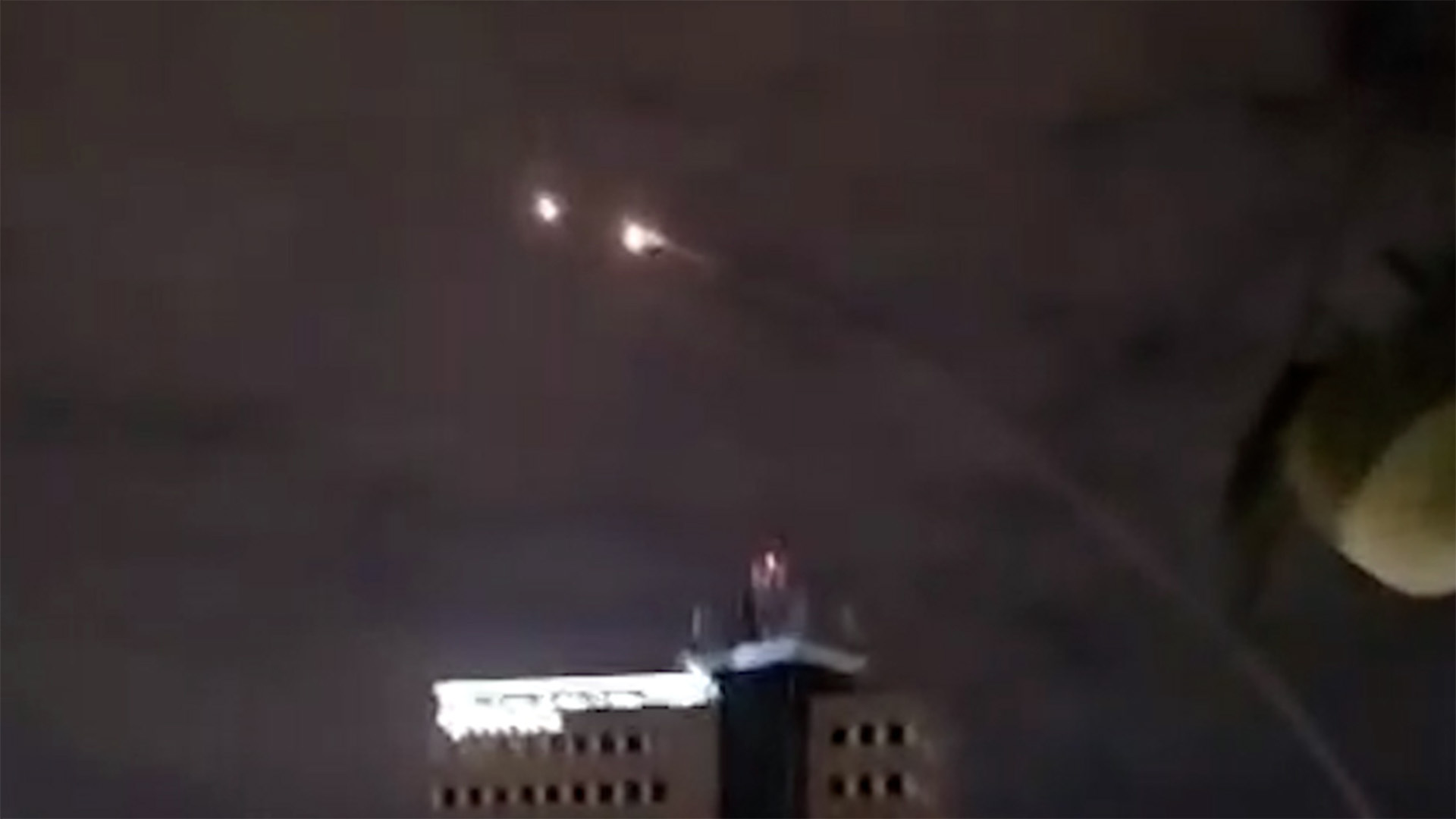

Interceptors were seen lighting up the sky over central Israel as sirens blared in response to an Iranian rocket barrage early Thursday morning.
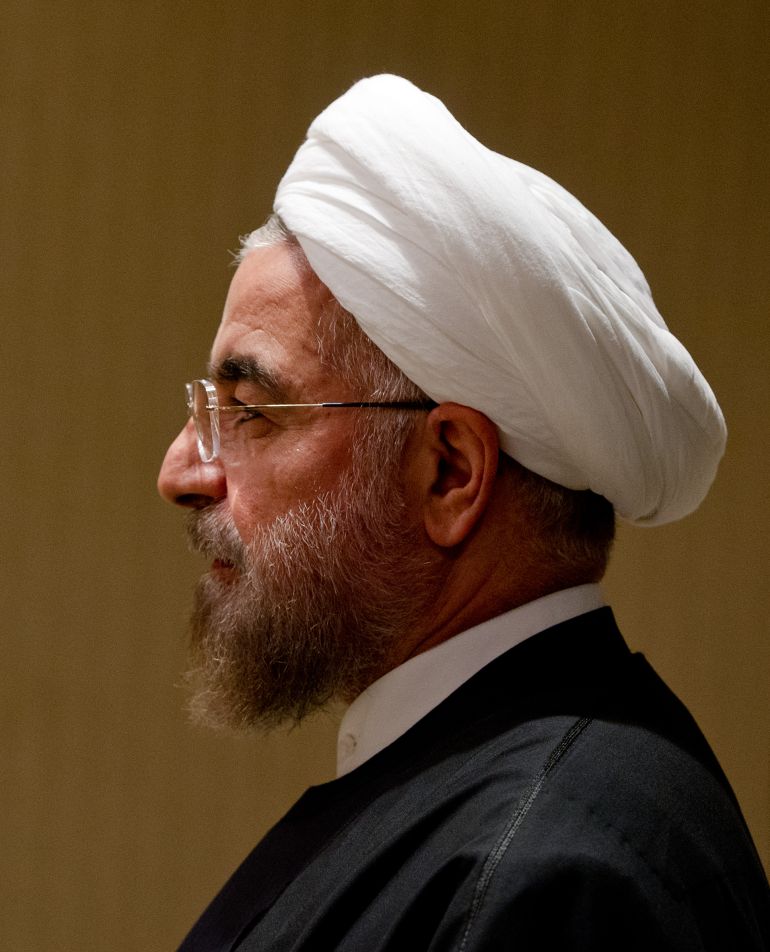
In Iran’s major turning points, Hassan Rouhani’s name tends to resurface – even when he is no longer at the centre of decision-making. And as the Islamic Republic enters a sensitive transitional phase after Supreme Leader Ali Khamenei was killed in a joint United States-Israeli strike, the question of which figures might be used to calm the domestic arena or rebalance power inside the system has returned to the forefront.
Rouhani, Iran’s former president (2013–2021), a Muslim leader with a doctorate in law, is not an outsider to the system he once promised to “reform”. He is a product of it: a longtime parliamentarian, a veteran of the national-security apparatus, and a former chief nuclear negotiator who rose to the presidency in 2013 as a pragmatist offering economic relief through diplomacy.
Rouhani was born in 1948 in Sorkheh, in Iran’s Semnan province. He received religious training in the Hawza system (Islamic religious seminary), then studied law at the University of Tehran, before earning a PhD in law from Glasgow Caledonian University in 1999.
After the revolution, he built his career through parliament. He was elected to the Majlis (Iran’s legislature) for five consecutive terms between 1980 and 2000, giving him practical political experience and longstanding relationships within the elite.
That background explains part of his later image as a “consensus man” more than an ideological confrontational leader: someone who moves within the rules of the game, not outside them.
To understand Rouhani’s political brand, it helps to place it in a longer arc of post-1979 ideological currents inside the Islamic Republic – an arc often described in Iranian political writing as a sequence of competing “discourses” that nonetheless remained anchored to the revolution and the system’s religious-constitutional framework.
Iran moved through phases that emphasised different priorities: currents sometimes described as “Islamic left”, “Islamic liberalism”, and a more market-oriented turn under former leader Hashemi Rafsanjani; then a period of “Islamic democracy” and “civil society” associated with Mohammad Khatami; followed by a social-justice-heavy, populist register under Mahmoud Ahmadinejad.
That’s when Rouhani arrived with the language of e‘tedal –or “moderation”.
Within that framework, “moderation” presents itself as an attempt to balance what supporters call the system’s two pillars: the “Republic” (pragmatism, governance, responsiveness) and the “Islamic” (ideals, clerical authority, revolutionary identity). This balance became central to Rouhani’s pitch in 2013: He promised to reduce external pressure, restart economic growth and lower domestic polarisation without challenging the authority structure that ultimately constrains any elected president in Iran.

Between 2003 and 2005, Rouhani led Iran’s delegation in nuclear negotiations with the “European troika” (Britain, France and Germany). He gained a reputation as a “pragmatist” among Western diplomats, while Iranian hardliners accused him of making concessions.
Later, that record became a pillar of his 2013 presidential campaign: a negotiator rather than a confrontationist.
In June that year, Rouhani won the presidency in the first round with more than 50 percent of the vote, avoiding a run-off in an election that saw high turnout.
Rouhani’s signature achievement was the 2015 nuclear agreement, the Joint Comprehensive Plan of Action (JCPOA), negotiated between Iran and the P5+1 – the US, China, Russia, France, United Kingdom and European Union.
Under the deal, the US and its allies lifted the bulk of sanctions imposed on Iran, and allowed Tehran access to more than $100bn in frozen assets. In exchange, Iran agreed to major caps on its nuclear programme.
At home, Rouhani sold the deal as a route to normalise the economy and curb inflation.
In May 2017, Rouhani won a second term with about 57 percent of the vote. Many inside Iran read the result as a bet by the country’s people on continued “opening” and reduced isolation.
But the power equation within Iran did not change. The presidency manages day-to-day governance, but it does not decide alone on the security services, the judiciary, the Revolutionary Guards or the core media architecture.
The diplomatic opening proved short-lived. In 2018, US President Donald Trump, in his first term, withdrew Washington from the JCPOA and reimposed sweeping sanctions, sharply limiting the economic gains Rouhani had promised. The reversal weakened Iran’s pragmatists and reformists, who had invested political capital in defending the agreement as the best available route out of isolation–while giving hardliners new ammunition to argue that negotiations with the US cannot deliver durable relief.
Rouhani’s presidency ended in 2021, and with the rise of conservative dominance within Iran’s politics, he appeared to be gradually pushed to the margins. He then became a member of Iran’s Assembly of Experts – the body constitutionally empowered to choose the supreme leader.
But in January 2024, the Reuters news agency reported that the Guardian Council barred Rouhani from running again for the Assembly of Experts.
Two years later, after the February 28 strike that killed Khamenei, the country – according to the constitution– entered a temporary arrangement phase until the Assembly of Experts selects a new leader. President Masoud Pezeshkian, Supreme Court Chief Justice Gholam-Hossein Mohseni-Ejei and Guardian Council member Ayatollah Alireza Arafi form the interim leadership council that are in charge until the Assembly of Experts announces its pick for the next Supreme Leader.
And from the hushed conversations and chatter that have emerged from within Iran’s elite circles over potential candidates for the supreme leader’s role, Rouhani’s name has resurfaced.
That possible return to political life, analysts say, is a testament to what Rouhani represents in Iran’s factional geometry: a governing style that privileges tactical compromise, economic management and controlled engagement – while remaining fundamentally loyal to the Islamic Republic’s constitutional-religious architecture.

Iranian media shared footage from several cities showing demonstrators condemning the US-Israeli war and chanting anti-Israel slogans.
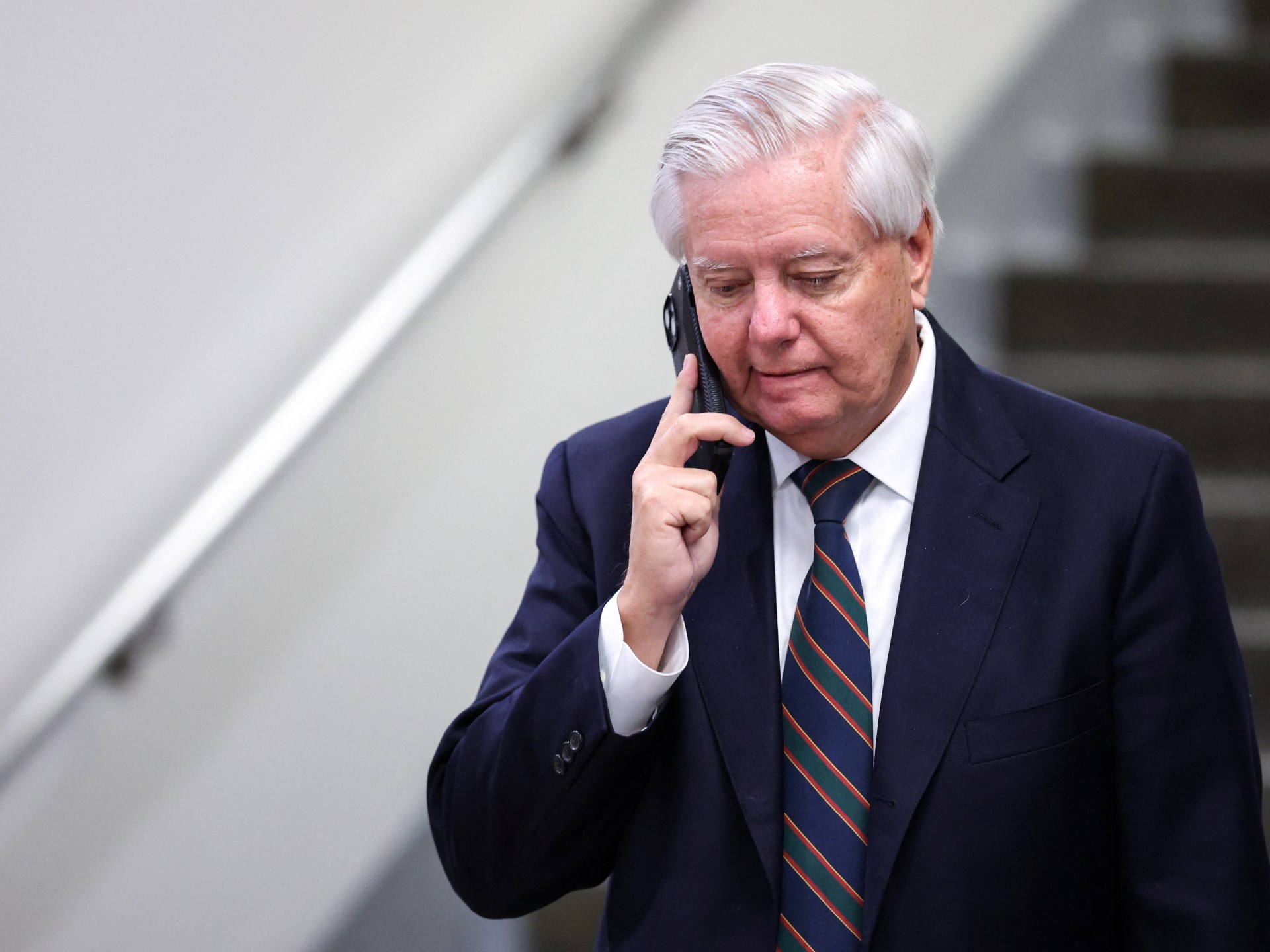
US Senate Republicans, joined by one Democrat, voted down a war powers resolution aimed at halting President Donald Trump’s war with Iran. This was Congress’ first vote on the conflict as fighting spreads across the Middle East.
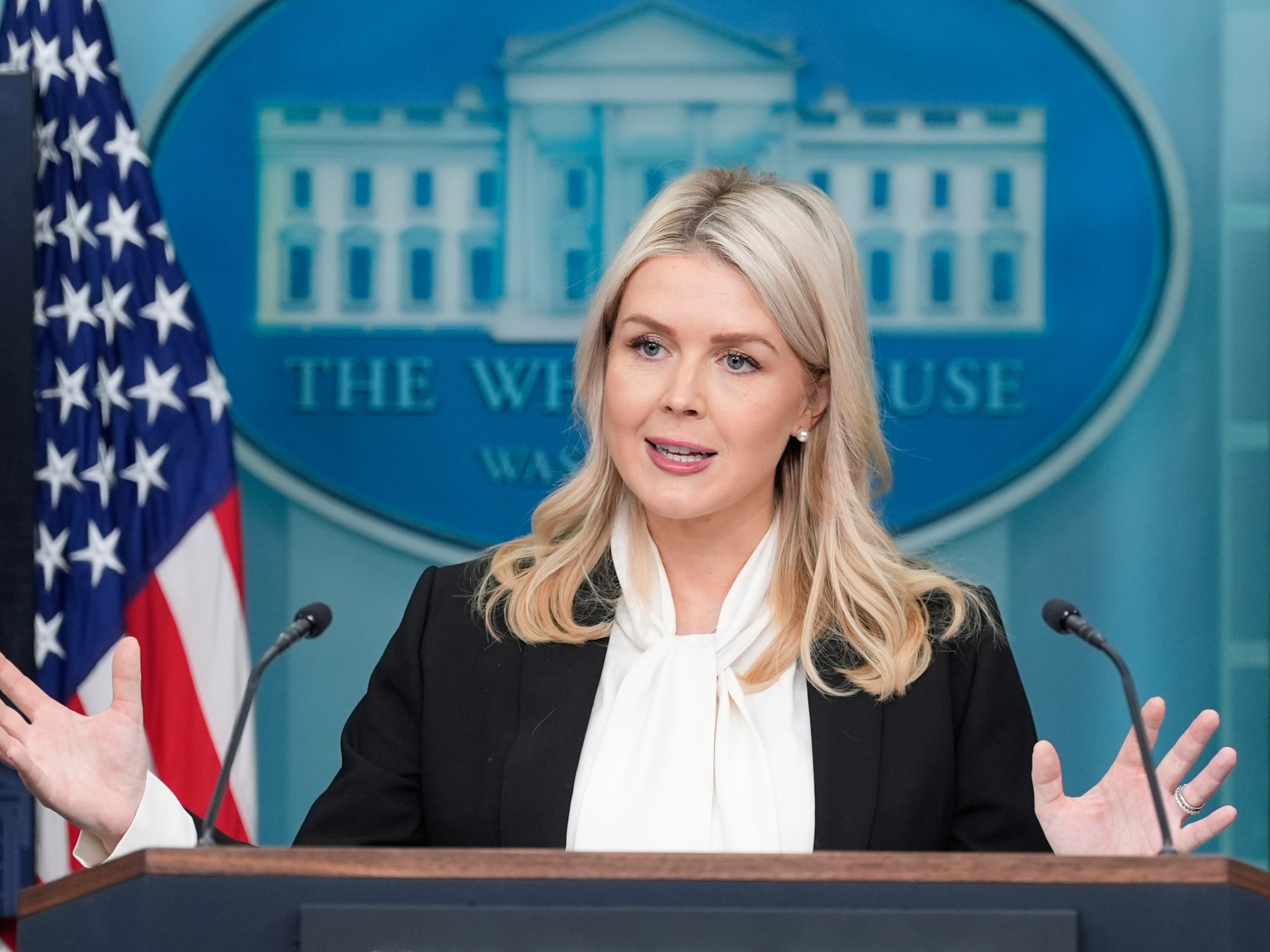
White House Press Secretary Karoline Leavitt said US President Donald Trump had a “good feeling” Iran was about to attack US assets in the region. Leavitt added US strikes were ordered over what she called an imminent threat.
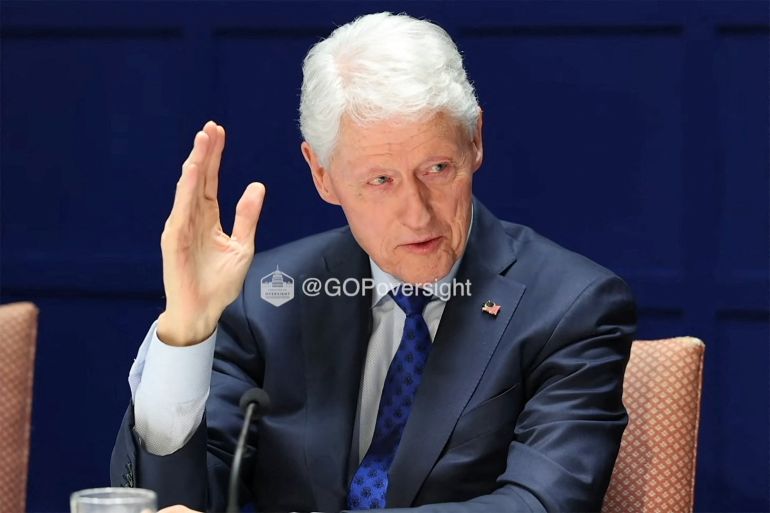
The United States House of Representatives Oversight Committee voted to subpoena Attorney General Pam Bondi, demanding she give testimony to the committee regarding the Department of Justice’s management of records linked to the investigation into sex offender Jeffrey Epstein.
In a rare bipartisan rebuke, the motion, introduced by Republican Congresswoman Nancy Mace, passed on Wednesday with a vote of 24-19, including five Republicans joining Democrats in supporting the subpoena.
list of 3 itemsend of list
Committee members are seeking clarity on how sensitive files were handled, archived, or potentially withheld during the long-running probe by the Justice Department into the deceased sex offender’s illicit network.
“AG Bondi will testify about missing Epstein evidence. The videos, the audio, the documents the DOJ is hiding,” Mace, of South Carolina, said in a post on X.
She said, “The American people deserve transparency. Survivors deserve justice. We’re delivering both. Accountability is coming.”
The Epstein files continue to haunt the administration of President Donald Trump more than a year after Attorney General Bondi faced intense criticism for sharing “no-reveal” binders of documents containing no new revelations with conservative influencers.
Tensions then peaked in July 2025 when the Justice Department claimed no Epstein “client list” existed, prompting a bipartisan congressional mandate for a full release of all documents in the investigation.
However, since that rollout of documents began in December, the administration has been under fire for allegedly fumbling the process and over-redacting files, while Justice Department officials maintain they are simply moving as fast as possible to legally vet millions of sensitive pages.
Bondi has staunchly defended the Justice Department’s handling of the files, accusing Democrats of stoking controversy over the documents to divert attention from President Trump’s accomplishments in office.
However, much of the sharpest backlash against Bondi has originated from within the president’s own party, where conservative lawmakers and supporters have expressed frustration over a perceived lack of transparency and the absence of new revelations despite the massive document release.
Congressman Thomas Massie, a prominent Republican and a vocal opponent of Trump – who co-sponsored the resolution alongside Representative Mace on Wednesday – has argued that the public has a right to know if their tax dollars were ever used to quietly settle sexual harassment claims involving members of Congress.
In a statement posted to X, Massie emphasised that government-funded settlements for personal misconduct should not be shielded from the taxpayers who paid for them.
The move to demand Bondi’s testimony comes a week after the Justice Department said it was looking into whether it had improperly withheld documents from the files after several news organisations reported that some records involving uncorroborated accusations made by a woman against Trump were not among those released to the public.
Former US President Bill Clinton and his wife, former Secretary of State Hillary Clinton, recently appeared separately for closed-door depositions before the committee, addressing Bill Clinton’s longstanding connections to Epstein more than two decades ago.
